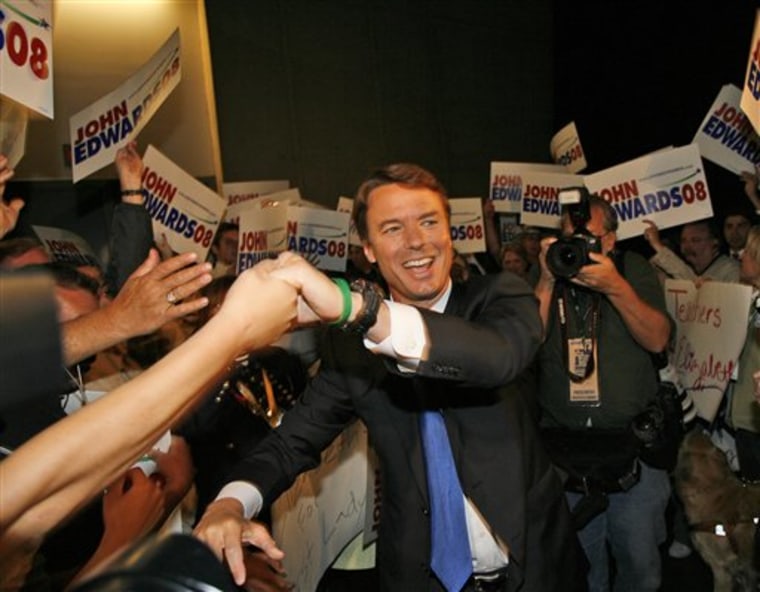It isn't every day on the campaign trail that New Mexico Gov. Bill Richardson proclaims himself a Californian, or that Hillary Rodham Clinton pledges to be a president who respects gay relationships.
But with trendsetting California set to move its primary to next Feb. 5, candidates are scrambling to adjust to a new reality in which the state's votes, and not just its money, may have a decisive impact on the nominating process.
California's enhanced role in the political calendar was on full display this weekend, with nearly all the major Democratic contenders flying in to address the annual state party convention. Front-runners Clinton and Barack Obama took the stage Saturday, along with Connecticut Sen. Chris Dodd and Ohio Rep. Dennis Kucinich. Richardson and former North Carolina Sen. John Edwards addressed the gathering Sunday.
The candidates competed for the hearts of the mostly left-leaning delegates with fiery speeches denouncing the war in Iraq, and they took turns praising the state for its leadership on issues like energy efficiency. Each one extolled the ascension of San Francisco Rep. Nancy Pelosi as House speaker earlier this year.
"I would have campaigned in California regardless, and California will now play a huge role in who the Democratic nominee for president is," Edwards said. "It's clear in the last two days ... that Democratic candidates are going to take it very seriously."
Primary burdens
California has long been a political piggy bank, dispensing vast quantities of cash to presidential contenders while expecting little attention in return.
Frustrated with that arrangement, Republican Gov. Arnold Schwarzenegger signed legislation earlier this year moving the state's primary to Feb. 5, shortly after the traditional small-state powerhouses of Iowa and New Hampshire. New York and New Jersey have since followed suit, and several other large states are expected to do so soon.
Most of the presidential hopefuls here insisted they were happy to see the nation's most populous state taking a bigger role in the nominating process. But Clinton, for one, openly acknowledged the shift had added a host of challenges to a campaign season already in hyper-drive.
"We've never had a primary process like this. we're all trying to figure out how to manage the resources, the time, the organizational challenges," she said. "It puts an enormous burden on me and my campaign. Obviously we have to cover a lot more ground, and raise a lot more money."
Cash cow
As if to illustrate that point, Clinton headed from the convention to fundraising events in Silicon Valley and Los Angeles. She raised over $5 million in the state during the first fundraising quarter that ended March 31.
Obama, who raised $4 million here in the first quarter, had three fundraisers following his convention speech, including one hosted by Cedric the Entertainer and another by powerhouse Hollywood agent Ari Emanuel.
But publicly at least, the weekend offered candidates a chance to hone their messages for California's famously diverse electorate. They also addressed the challenges of illegal immigration, a major issue in this state.
Richardson, who is running to be the first Hispanic president, won applause as he shouted "Si se puede!" - Yes, it can be done! It's slogan made famous by Cesar Chavez, legendary founder of the state's farmworkers union.
But Richardson acknowledged that the sheer size of the state made traditional retail politics nearly impossible.
"If I do every living room, I'll be dead," he said.
For his part, Edwards said California deserved to be a major electoral player but that Democrats needed to move beyond their traditional strength in coastal areas.
"We need a candidate for president who can campaign and compete hard in California and New York, but who can also campaign and compete hard in Iowa, in Missouri, in Georgia, in Kentucky and in Virginia. "Everywhere in America," he said.
